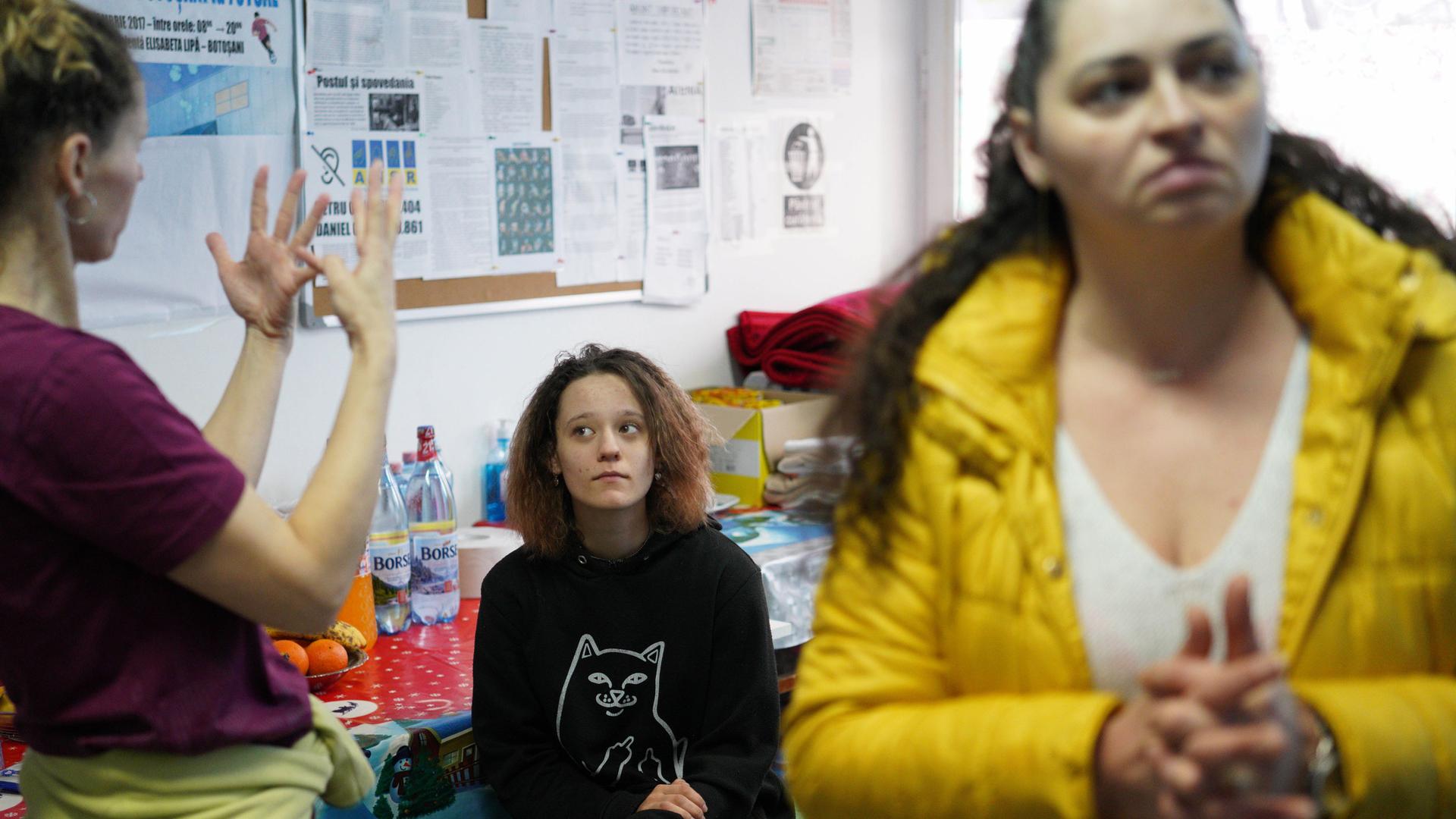Early on in the war, Olga Sviridenko realized she would have to get her family out of eastern Ukraine.
While most of their neighbors could hear air raid sirens warning of an incoming strike in northeastern Kharkiv, she and her husband Roman Sviridenko had to rely on the buzz of a text alert.
“Sometimes we’d see people running around frantically, and we wouldn’t know what was going on. … We want to run, too, but where?
“Sometimes we’d see people running around frantically, and we wouldn’t know what was going on,” she said in Ukrainian sign language. “We want to run, too, but where?”
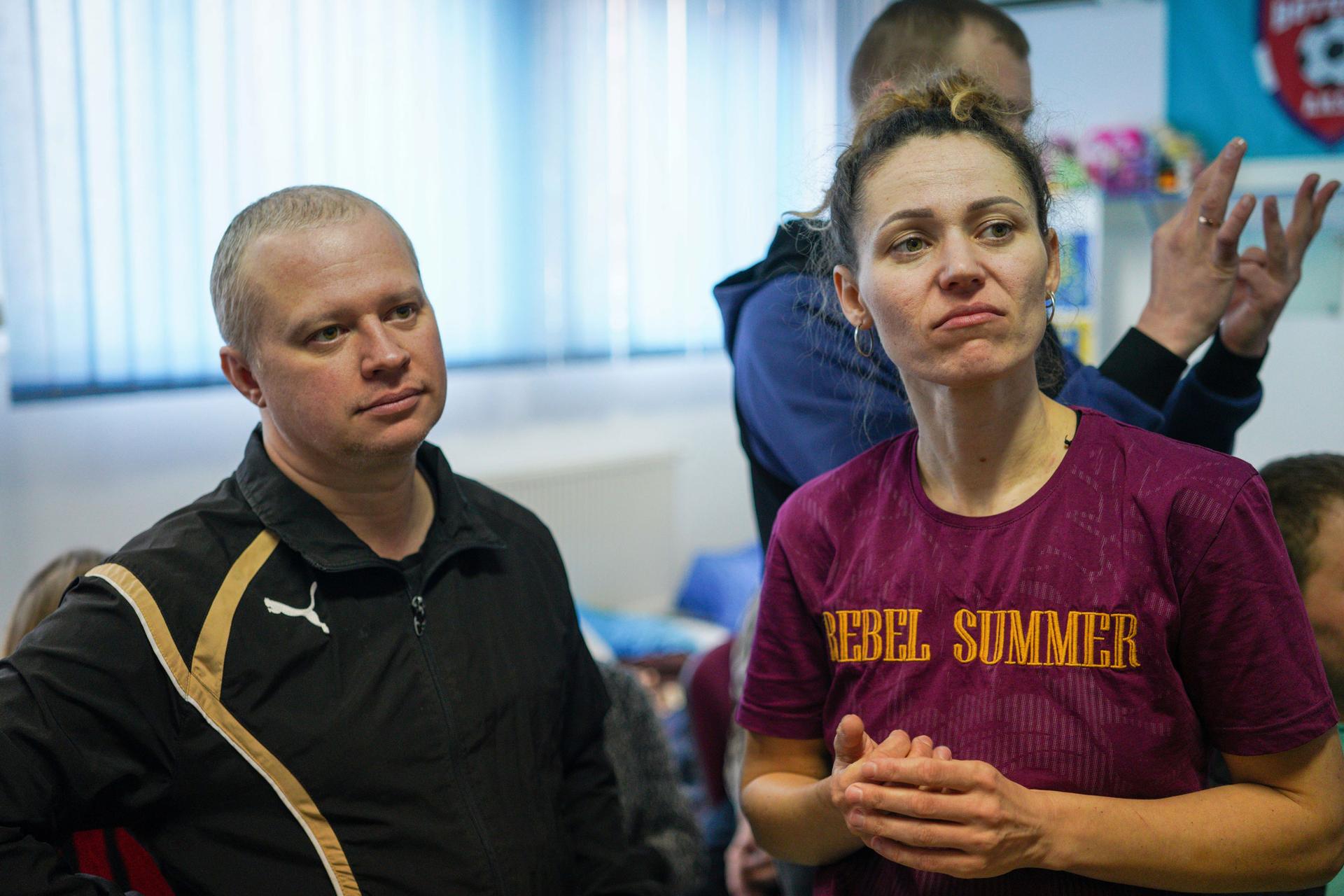
Related: As Canada prioritizes expedited arrivals for Ukrainians, at-risk Afghans remain trapped abroad
The Sviridenkos are among the approximately 38,000 Ukrainians who are deaf or hard of hearing, who lived in the country before the Russian invasion on Feb. 24.
Now, thousands have fled to nearby countries, joining Europe’s largest wartime movement of people since World War II. Others remain, trying to navigate a war zone without being able to hear it.
During nights spent in bomb shelters and metro stations, Olga Sviridenko found some solace in the fact that her two daughters, who are also deaf, couldn’t hear the bombs falling outside.
But her friend Inna Podlipian, who is also deaf, has two daughters who can hear. They’re young — just 6 and 9. At night, she knew her daughters could hear the missile strikes that she could not.
“They [cried] all the time. … I made them promise not to tell the other [deaf] kids [in the shelter] what they could hear.”
“They [cried] all the time,” she said in sign language, and broke down in tears. “I made them promise not to tell the other [deaf] kids [in the shelter] what they could hear.”
In early March, the families escaped Kharkiv together, in a convoy of cars with other deaf families. The traffic was horrendous — cars would speed up and then stop suddenly, Sviridenko said. At one point, they got rear-ended. Olga Sviridenko hit her head and injured her arm.
Along the way, they slept at various homes with spare rooms.
The group passed through Moldova, and finally reached the small town of Botoșani, Romania, about 31 miles from the Ukrainian border. There, they were taken in by a local branch of ANSR, Romania’s National Association of the Deaf.
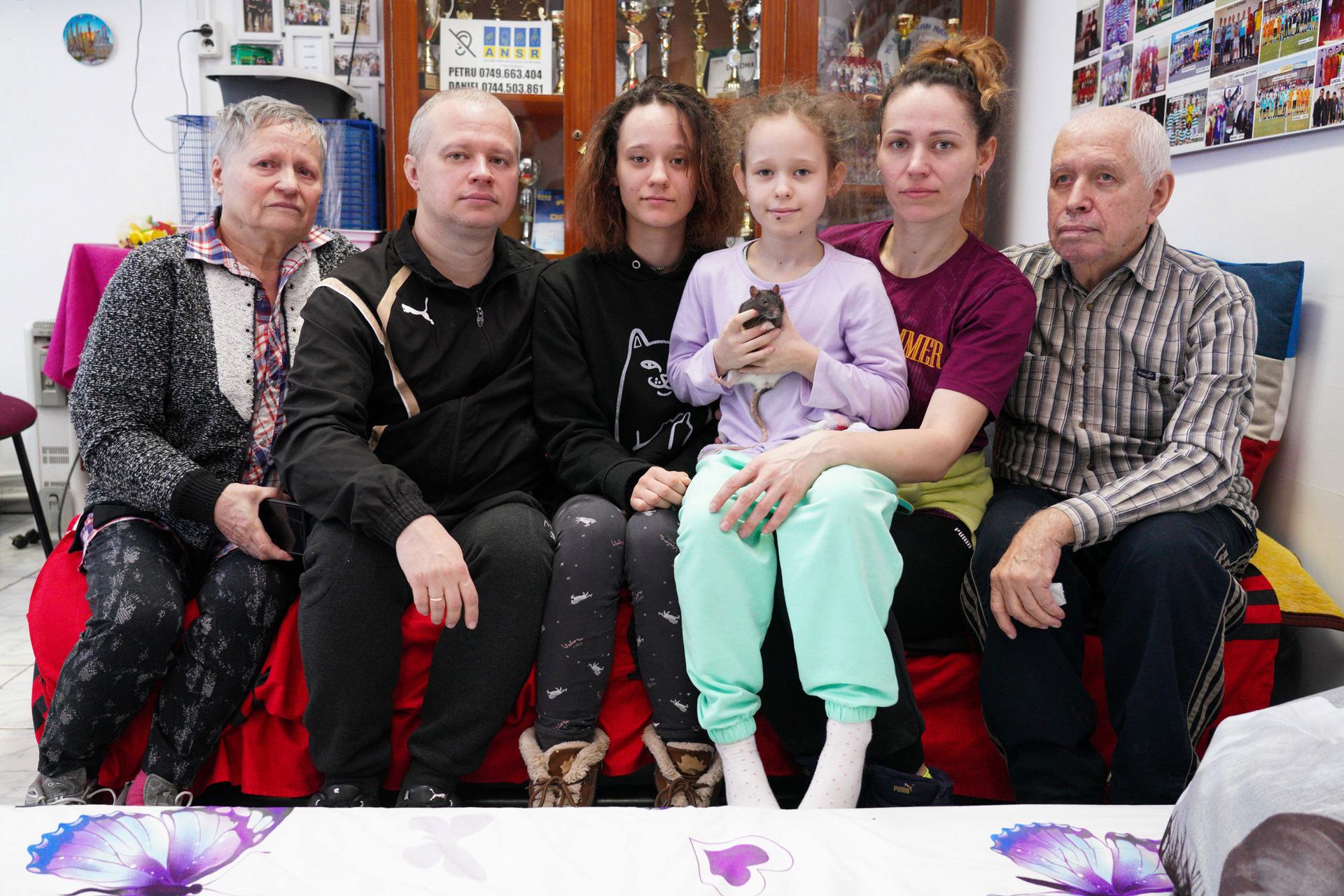
Related: In southern Romania, villagers are uneasy about a NATO missile defense system in its backyard
In one small room, mattresses topped with colorful blankets filled the floor. A table loaded with snacks was off to one side, donated by the local deaf community.
On one mattress, the daughters of the two families sat down to play with a pet rat they’d brought along, named Sara.
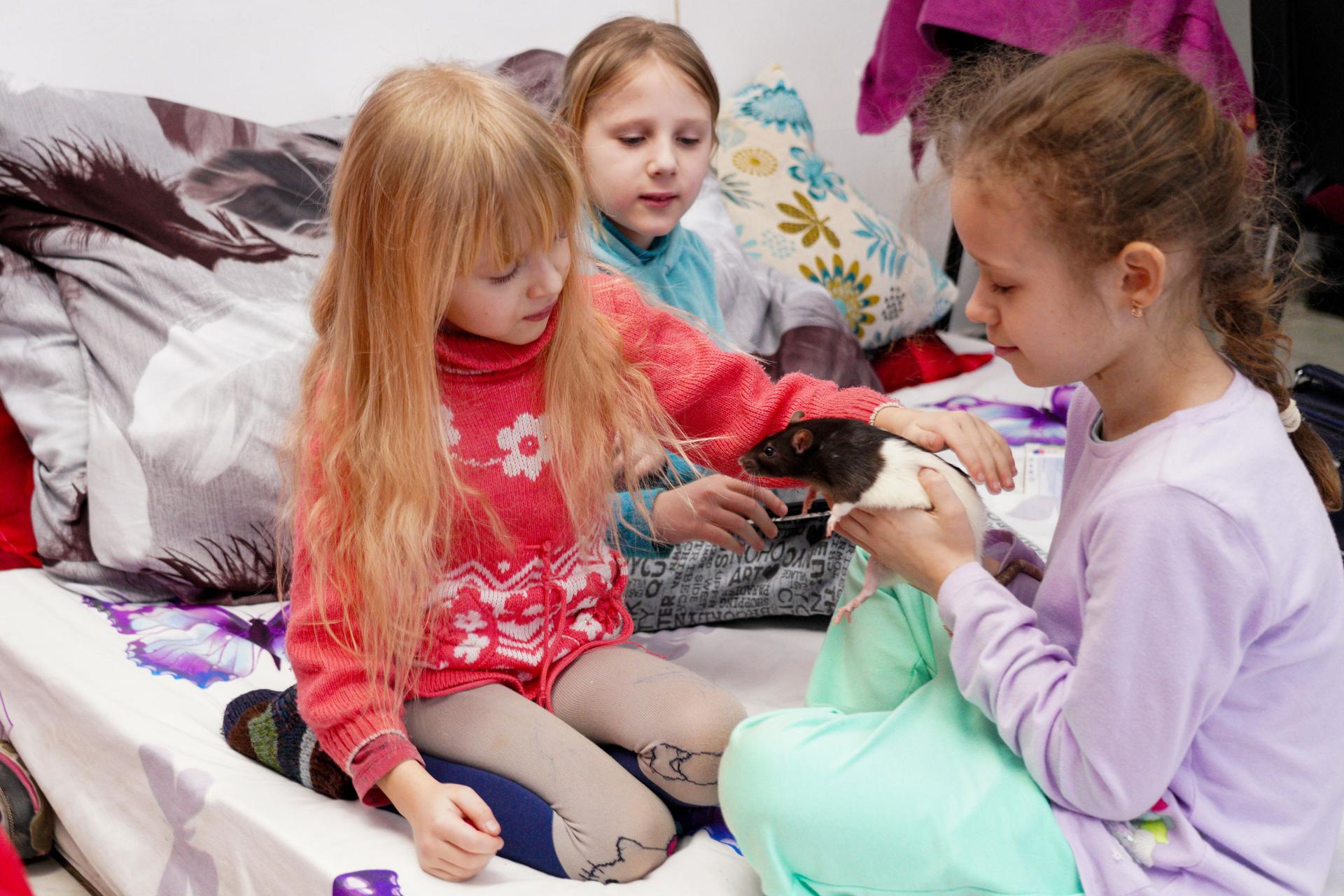
Podlipian’s mother-in-law sat nearby and spoke to relatives back home in sign language using FaceTime.
A TV above her played silently, with news from the front lines. Later, they would go to a doctor’s appointment for her husband, who has diabetes and has struggled with his blood sugar during their escape.
Finally, the families could breathe a sigh of relief.
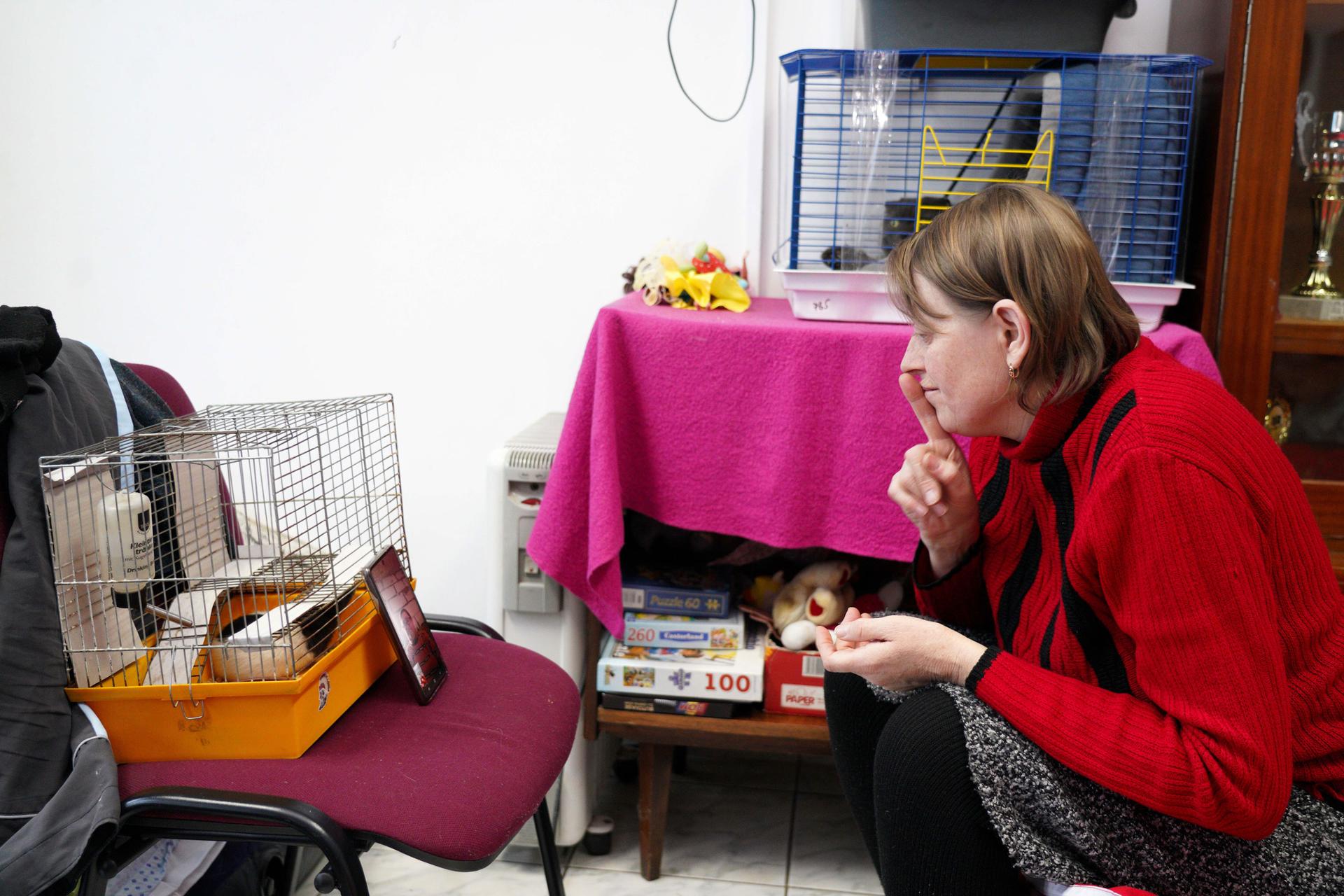
“Everything is destroyed. Our homes, everything. We want to move on to another place and another life,” Olga Sviridenko said. “The deaf of the world, we just want peace.”
Related: Echoing WWII rescue efforts, ethnic Russian researchers in the US support Ukrainian scholars
There’s been one major challenge: Ukrainian and Romanian sign languages are completely different. They’re even based on different alphabets.
With help from ANSR volunteers, the families developed a way to communicate through a combination of gestures, facial expressions and commonly understood signs borrowed from other sign languages, like Italian.
After a couple weeks, entire conversations became possible.
“We [struggle] to understand each other,” said Mona Ababei, an ANSR volunteer from Botoșani, who is also deaf.
Before the war, the Botoșani branch of ANSR was a small, two-room field office that didn’t even have a refrigerator, director Daniel Hliban said. Now, he estimates they’ve hosted at least 200 people. He said he’s running on just two or three hours of sleep.
He gets emotional when he talks about the crisis.
“We treat them as our brothers and sisters. … The best sign they need right now is a hug. And to say ‘welcome’ and to say ‘you are safe.’ That’s the only thing that’s important at the moment.”
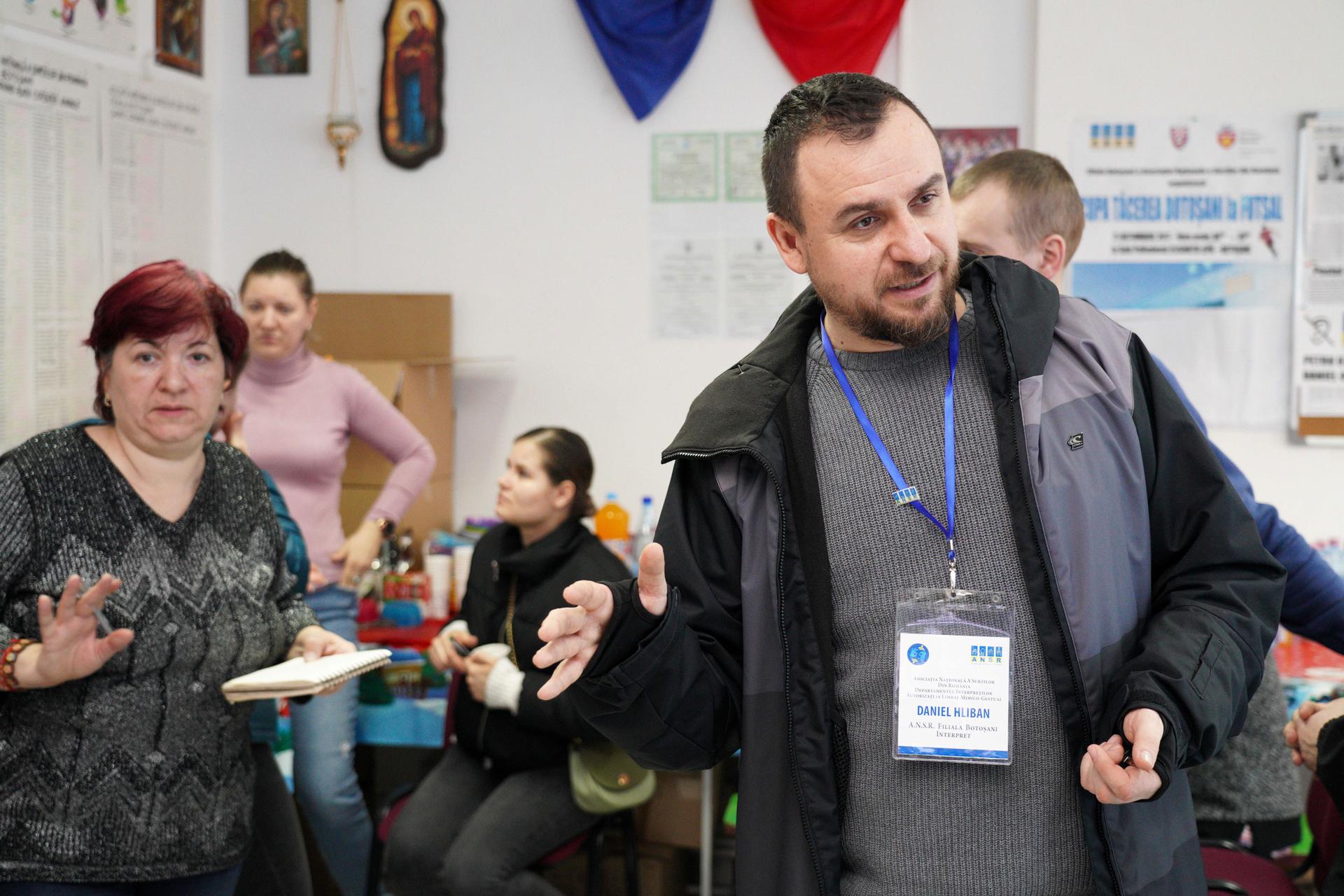
“We treat them as our brothers and sisters,” Hliban said. “The best sign they need right now is a hug. And to say ‘welcome’ and to say ‘you are safe.’ That’s the only thing that’s important at the moment.”
Related: Russians and Ukrainians attempt to flee to the US through Mexico
Men who are deaf are exempt from Ukraine’s rule banning most men between the ages of 18 and 60 from leaving the country. However, Hliban said he has heard of several cases in which deaf men were prevented from crossing the border to exit Ukraine.
Some families, he said, have also chosen to remain displaced within Ukraine’s borders, so they can stay together.
The war has displaced more than 10 million people in just over a month — more than 4 million people have fled the country to seek refuge in other countries, according to UNHCR.
Earlier this month, the World Federation of the Deaf released guidelines on the protection and safety of people who are deaf during war.
“Any time there is armed conflict or settings of war, people who don’t have full access to information are very vulnerable.”
“Any time there is armed conflict or settings of war, people who don’t have full access to information are very vulnerable,” said Joe Murray, president of the World Federation of the Deaf.
Ukraine’s deaf advocacy community has deep roots in Soviet factories, where entire workforces would be composed of deaf workers.
In modern times, Ukraine’s Society of the Deaf was one of the first organizations in Europe to make sign language interpretation available for all emergency services.
Now, the community is focused on getting people to safety — and making up-to-date information available for sign language speakers.
“You need to keep up with the information being exchanged, in order to figure out what’s the best route to take, for example,” Murray said. “To follow what local authorities are negotiating for instance, for safe passage. To follow the Red Cross, their organization of convoys.”
The first group of deaf refugees from Ukraine already seemed to have international contacts, Murray said. This group has traveled before and has connections with other deaf communities abroad.
Related: The new Russian diaspora finds a home in Istanbul
“But with the second wave of deaf refugees, we might end up seeing individuals who have less international contacts, which makes them more vulnerable, and more in need,” Murray said.
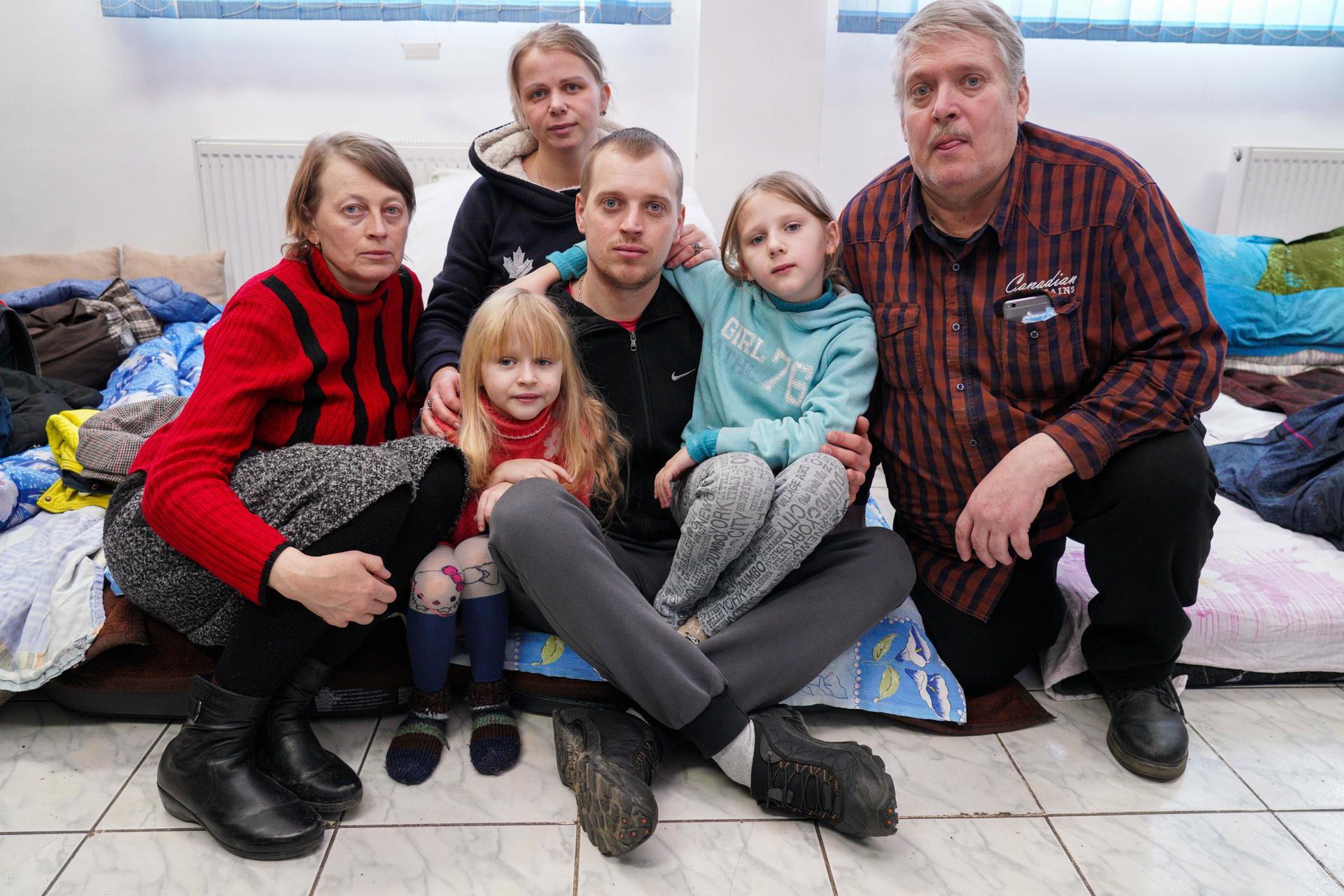
Olga Sviridenko and her family are now safely in France, where she said they’re staying at a temporary shelter.
Inna Podlipian and her family have found a new home in northern Germany. They said they’re praying they can return home when the war is over.
Until then, they’re just waiting for peace.
“Everything is fine so far, but for me, my heart is heavy for Ukraine,” Olga Sviridenko said.
Our coverage reaches millions each week, but only a small fraction of listeners contribute to sustain our program. We still need 224 more people to donate $100 or $10/monthly to unlock our $67,000 match. Will you help us get there today?
